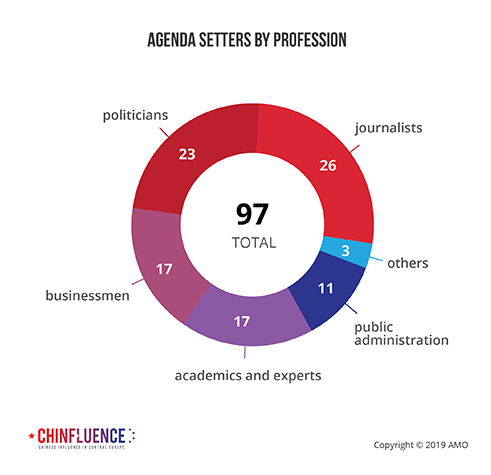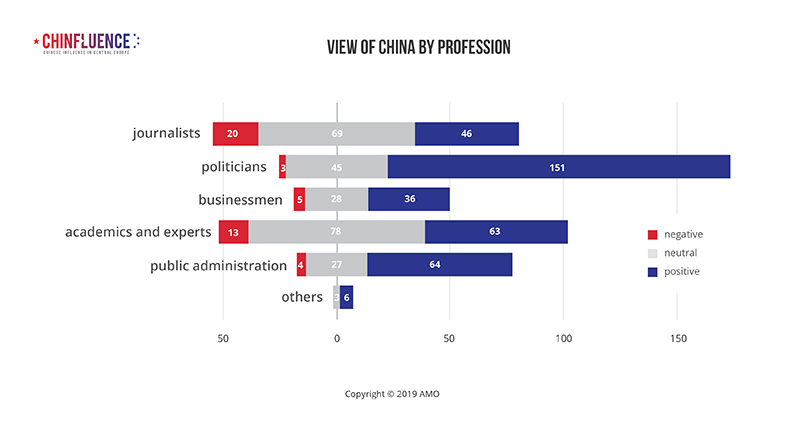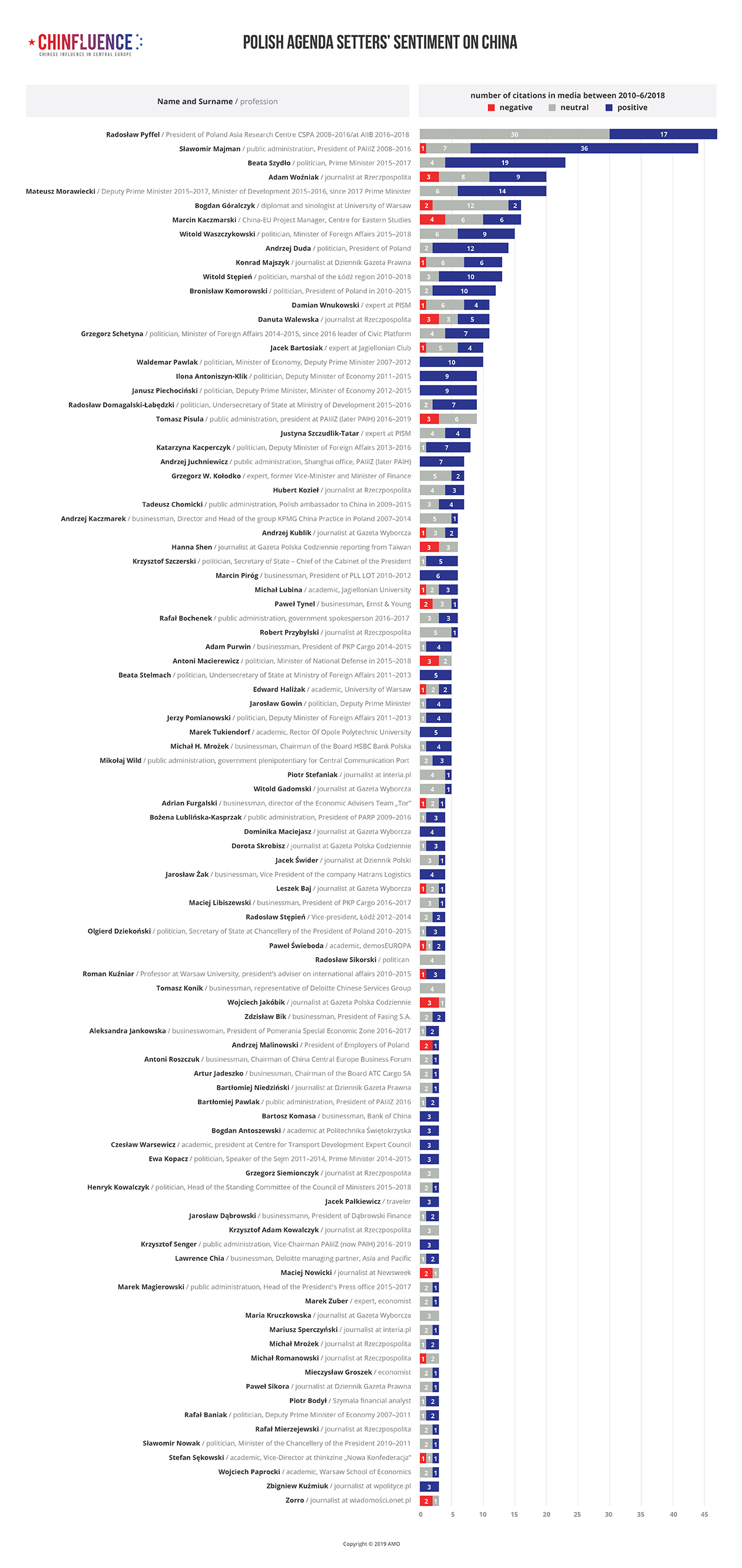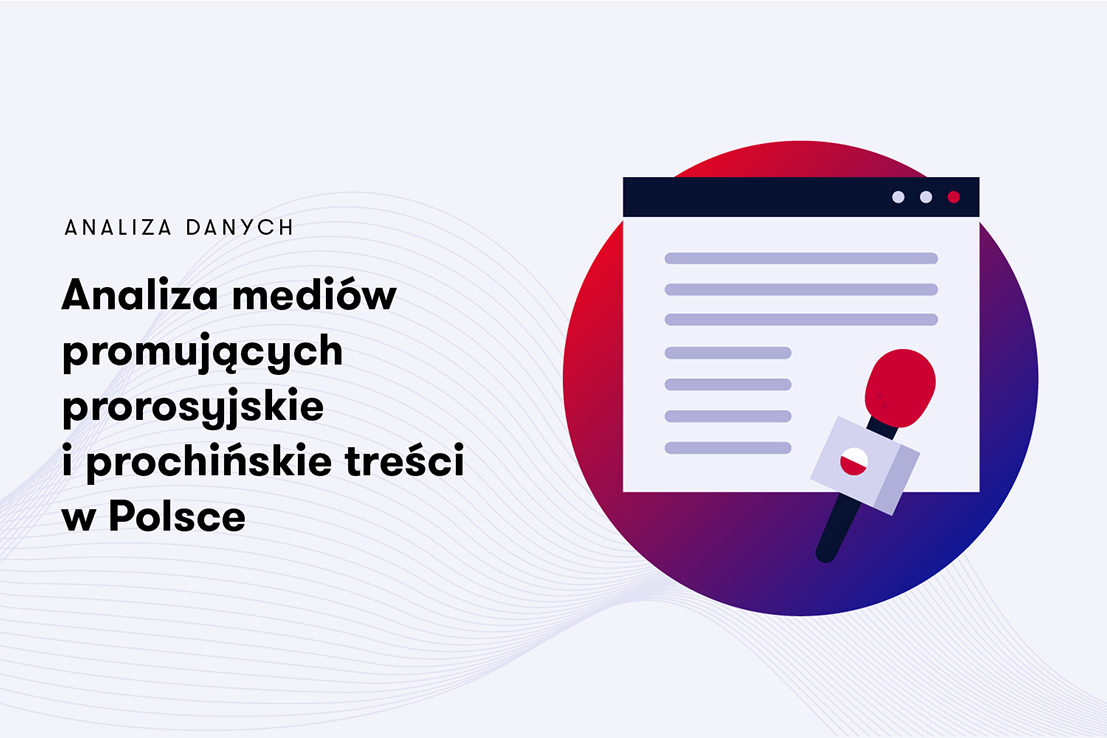Polish Social Network Analysis
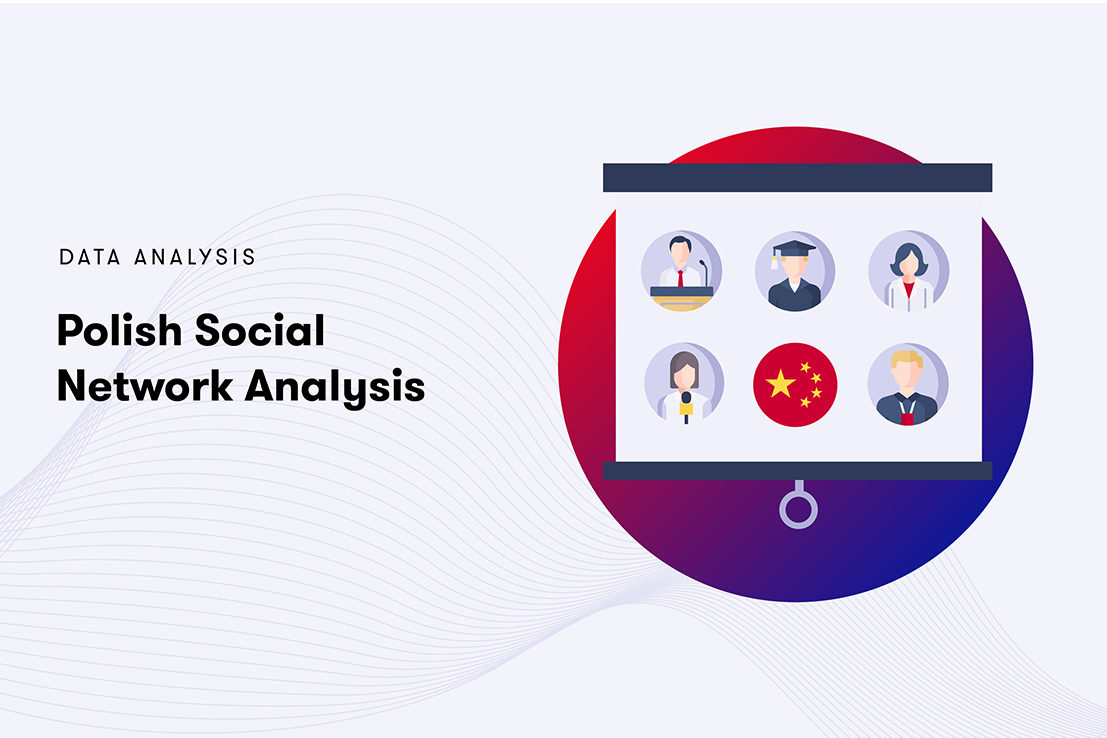
The researchers looked at the main authors and co-authors of texts, as well as identified individuals and institutions who were mostly quoted by the media in vogue. Altogether 97 key agenda setters (that is: those persons who were cited at least three times in the analyzed period – in case of journalists, authorship was counted as citation) were found and subjected to further study.
Politicians (often of the highest-level ranking, such as those who sign Sino-Polish agreements) were found to be the most positive group of agenda setters – and the second biggest in numbers. Three quarters of Polish politicians who spoke on China issues for the Polish print and online servers demonstrated positive views on China-related subjects.
It is noteworthy that the only 3 negative mentions coded within the group of Polish politicians are attributed to Antoni Macierewicz, Minister of National Defense from 2015 to 2018, who at the very beginning of his term in the office in an interview with a Polish diaspora in Canada TV “Goniec TV Toronto” criticized the idea of the Belt and Road, claiming it was “a part of Western European, Russian and Chinese plot to eliminate American influence in the Euro-Asiatic region and to liquidate the sovereignty of Poland”. Although the incident hardly got through to the mainstream media, the Minister’s objections translated into action in early 2017, when he refused – to the huge dissatisfaction of the city of Łódź – to grant a permission to purchase a plot of land belonging to the Military Property Agency on which Beijing intended to build a communication center crucial for its global plans.
The second most positive group of Polish agenda setters were the representatives of public administration. Their sentiment towards China which could be found via the media mapping was from two thirds favorable, with hardly any negative mentions.
True to form, majority of Polish academics and experts, as well as journalists reported on China in a neutral way (which was also the case in all the other analyzed countries). In the same time, a substantial part of both groups demonstrated a positive sentiment with relatively small incidence of negative mentions. Still, the composition of their sentiments was the most polarized. The highest percentage of agenda setters leaning towards non-favorable views on China-related issues could be found between the representatives of media (15%). It is also worth noting that both in Poland and the other Visegrad countries, journalists outnumbered the other categories of agenda setters. Thus, the public sentiment is mostly influenced by a handful of agenda setters, most of whom are journalists or politicians, and only to a lesser extend academics or China experts.
In case of Polish businessmen, over 50% of mentions were coded as positive, and slightly over 40% as neutral. As a rule, positive sentiments were expressed in relations to business opportunities with Chinese partners, initiatives (such as the Belt and Road or “16+1”) or investments that Poland was hoping to participate in and take advantage of.
